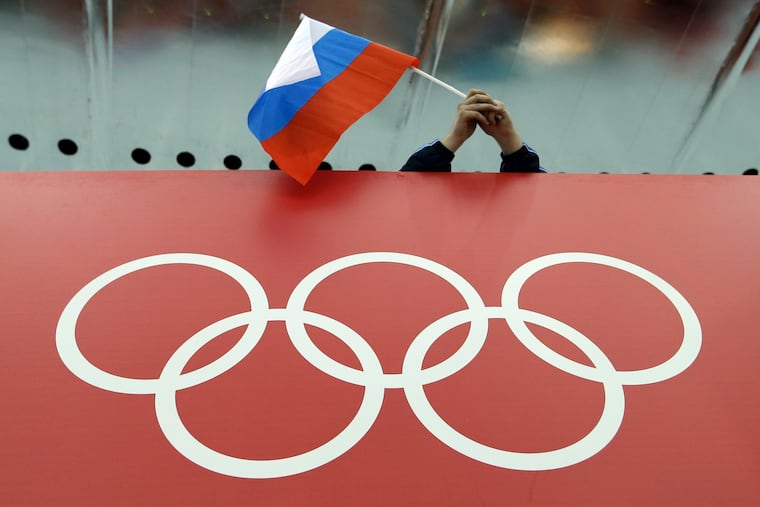Russia’s spot in the Tokyo Olympics is threatened amid new doping concerns
If Russian Olympic officials can't sufficiently explain discrepancies in doping data reviewed by the World Anti-Doping Agency, the country again could be facing drastic disciplinary measures, possibly endangering Russia's participation in next year's Tokyo Olympics.

If Russian Olympic officials can't sufficiently explain discrepancies in doping data reviewed by the World Anti-Doping Agency, the country again could be facing drastic disciplinary measures, possibly endangering Russia's participation in next year's Tokyo Olympics.
In a statement Monday, Russian Olympic Committee president Stanislav Pozdnyakov said "the situation is very serious," and officials there have three weeks to answer questions over suspect data from its Moscow anti-doping laboratory, sparking a renewed round of scrutiny on the nation that orchestrated one of the most elaborate doping operations the Olympic world has seen.
The latest breach was made public Monday at a meeting of WADA's executive board in Tokyo, where board members were informed of inconsistencies between data submitted earlier this year by Moscow's laboratory and information shared by a whistleblower in October 2017.
The Russian Anti-Doping Agency (RUSADA) was suspended in November 2015 for its role in the widespread state-sponsored scandal that marred many competition results from the 2012 and 2014 Olympics and several international competitions. The organization was reinstated last year but was required to turn over laboratory data. WADA's Intelligence and Investigations Department received that data in January 2019, and last week initiated a "formal compliance procedure" over concerns that the data it was given had been tampered with or altered.
RUSADA and the Russian Ministry of Sport have been given three weeks to respond to questions, though WADA has said it has no timetable for a final decision. If the executive board finds that Russia has been "noncompliant" and the Court for Arbitration in Sport affirms the decision, the country could face penalties similar - or even more severe - to what it received before the 2018 Olympics. Some Russian athletes were allowed to compete at the PyeongChang Games as "Olympic Athletes from Russia," but the country had no formal presence the 2018 Winter Games.
In his statement Monday, Pozdnyakov acknowledged the "the prospects for the participation of the Russian Olympic team at the Games in Tokyo next year will be in jeopardy." Russian Olympic officials have repeatedly tried to impress upon the international Olympic community that it has undertaken major reforms and deserves full reinstatement to athletic competitions. Pozdnyakov, who took over as president of the Russian Olympic Committee in May 2018, said the organization has made "diplomatic efforts to regain the trust of the international sports community."
"But now again we run the risk of facing certain sanctions for reasons to which we have nothing to do," he said.
The extended investigation will serve as yet another test for WADA and the International Olympic Committee, both of whom have drawn the ire from anti-doping advocates for failing to keep Russia in line, despite mounting concerns from many athletes and varying degrees of indifference and defiance from some Russian leaders.
"In the words of a well-known law enforcement personality - 'surprise, surprise, surprise,' " Travis Tygart, chief executive of the U.S. Anti-Doping Agency said in a statement Monday. "Looks like it's hammer time, and let's hope there are no secret backroom deals but that justice is finally served in an open, transparent and public manner. The world, especially clean athletes, have been yanked around enough already."
While Russian's inclusion in the next summer's Tokyo Games could hang in the balance, Monday's news had an immediate impact on the Olympic community. The world's best track and field athletes are gathering in Doha, Qatar, this week for the IAAF track and field world championships, which begin Friday. The IAAF ruled Monday that 30 Russian athletes could compete as neutral athletes at the meet but Russia's track and field federation would remain under suspension.
“There is a recurring problem of athletes and local athletics federations working with banned coaches which undermines the creation of any strong anti-doping culture,” said Rune Andersen, chair of an IAAF task force charged with monitoring Russia’s progress. “It is premature to tell if the reported measures taken by [Russian Athletics Federation] will work, therefore the associated conditions for reinstatement have not been met.”